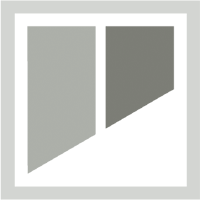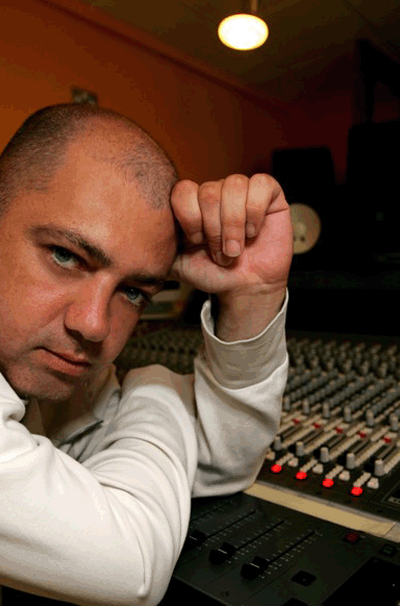Geist

Next-generation sampling drum machine
View more info
Best known for his genre-defining dancefloor hits 'Get Off' and 'Hell Yeah', Sharooz's productions have won the support of the world's leading DJs, including Moby, 2 Many DJs, Erol Alkan, Boys Noize, David Guetta, Roger Sanchez, Pete Tong and James Zabiela. A regular DJ fixture from London to LA, San Francisco to Stockholm and Milan to Moscow, his remixes for Air's Record Makers label and platinum-selling artists such as Moby, Craig David and Robyn have won him mainstream acclaim. His tracks have garnered radio play on virtually every specialist Radio 1 show from Pete Tong to Judge Jules, Kissy Sell Out to Annie Nightingale. In the past few years, Sharooz has also released and remixed on Lot 49, Milk 'n' Sugar and Instereo, becoming a regular on the Beatport sales charts.
A remixer to Grammy-nominated US producers Dave Aude and Dean Coleman, he has also programmed for the Pussycat Dolls, produced tracks for EA games, PS3 commercials and sound-designed for a variety of releases on his own Sample Magic imprint. 2010 sees the launch of his new La Bombe label, an exclusive home for all his forthcoming productions.
Here is an earlier interview from June 1st 2010
FX: How did you first get interested in making music and what led you to make electronic dance music?
S: I played guitar in punk bands as a teenager, then did a degree in Music Technology when I finished school. During that time I went to Space in Ibiza when it first started and got completely hooked on dance music. I started producing electronica around 1999 and haven't looked back since.
FX: What projects are you currently working on?
S: I've just launched my record label La Bombe. Our first release is out in June, closely followed by two EPs by myself. Expect big name remixes and some unique genre-crossing ideas. I just finished a US tour culminated with an epic set alongside Adam Freeland at Avalon in Los Angeles. I'm also busy running the sound design company Sample Magic and I'm composing an esoteric soundtrack for Swedish modern dance company Art of Spectra to be performed live in Gothenburg in July.
DCAM: Synth Squad: "It's about the only one that sounds better or as good as the analogue equivalent. The oscillators in isolation tear through the mix in ways I've only heard real VCOs do in the past"
FX: What’s the piece of music that changed your life?
S: The Sabres of Paradise 'Smokebelch'. Despite the fact it's recently been used for a crass mobile phone commercial, it is still to this day, the best example of traditional orchestration using electronic elements.
FX: Typically how do you approach a remix?
S: If there's a vocal, I always try to figure musical or rhythmical elements around that. If not, I'll usually take the most interesting instrumental part, put it across my soft sampler and fit it into an existing rhythmic template I already have. I never listen to the original as I don't want that to influence my direction.
FX: You once said that analogue synths and soft synths are like night and day, how has DCAM: Synth Squad changed your view on soft synths (if at all)?
S: It's about the only one that sounds better or as good as the analogue equivalent. The oscillators in isolation tear through the mix in ways I've only heard real VCOs do in the past.
FX: How do you use DCAM: Synth Squad, Do you have any tips or tricks you would like to share?
S: I love stacking the voices and turning up the white noise generator. A lot of dance music just sounds too slick at the moment, and doing that means creating a sound so huge, everything else in the mix is begging to be twisted beyond belief.
FX: Is there any software innovation that would be a valuable addition to your studio?
S: Something that gives me a virtual slap every time I access social networking sites!
FX: What elements do you think need to be there to make up a successful dance track?
S: The relationship between the kick and bass needs to be solid, both rhythmically and sonically. There needs to be a memorable breakdown and elements which sound amazing (and not repetitive) when looped through the entirety of a track.
FX: Where do you see yourself in 10 years time in terms of making music?
S: I'd like La Bombe to be internationally recognised for bringing great music to the masses, and have at least a couple of ' Sharooz' albums under my belt!

Next-generation sampling drum machine
View more info

Circuit-modelled software synthesis
View more info

Matt Lange is an electronic musician, DJ and recent Los Angeles resident. His style of production is synonymous with attention to detail, precision, and musical craftsmanship, all without losing sight of emotional impact.
View artist interview

FXpansion caught up with Steve Mac at Future Music Producer Sessions 2013...
View artist interview

Dom is one of the most exciting rising stars of Dance Music, his music offers a perfectly produced approach to his fresh concept of House music...
View artist interview
THANKS FOR SIGNING UP
WELCOME TO THE FXPANSION COMMUNITY!